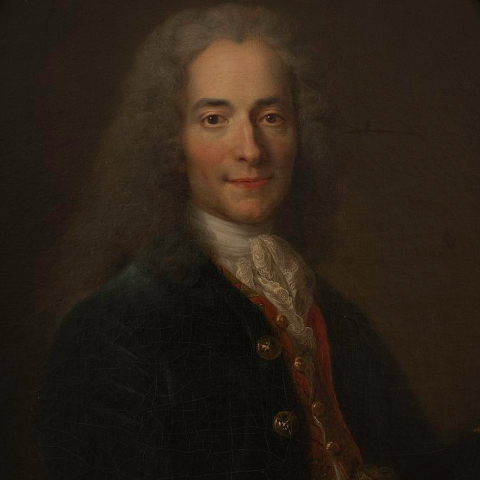Voltaire's Estimated IQ: 186

It’s not every day that a philosopher, playwright, and social critic manages to inspire revolutions, ignite controversy, and remain relevant centuries after his death. François-Marie Arouet, better known as Voltaire, was that rare figure. He was a man whose intellect was so sharp and influence so vast that his impact continues to be studied, debated, and admired. Voltaire is credited with an IQ of 186. Note that this is an average (see below), and keep in mind modern IQ measures didn’t exist in his time.
Voltaire was not just a man of brilliance. He was also a man of contradictions. His legacy, while monumental, has been reevaluated in modern times. Below, we delve into his intelligence, his controversies, and his enduring influence on history.
A mind that redefined enlightenment
Born in 1694 in Paris, Voltaire was a prodigious thinker from a young age. Educated by Jesuits, he mastered Latin and Greek early, setting the stage for his lifelong love of literature and philosophy. His wit and sharp intellect quickly earned him fame in Parisian society, where he mingled with the elite. Yet, Voltaire didn’t just bask in the glow of high society. He wielded his pen like a weapon.Voltaire’s works, ranging from biting satires like Candide to incisive philosophical treatises, showcased his ability to blend humor with sharp criticism. He famously said, “One always begins with the simple, then comes the complex, and by superior enlightenment one often reverts in the end to the simple. Such is the course of human intelligence.” This encapsulated his belief in using reason to cut through the complexities of superstition and dogma. His time in England was transformative. Exiled after a dispute with an aristocrat, Voltaire absorbed English ideas of constitutional monarchy, freedom of speech, and empirical science. These ideas informed his Lettres philosophiques, which praised English liberty while criticizing French absolutism—a bold move that earned him both acclaim and censure.
A controversial figure with enduring influence
While Voltaire’s wit and intellect made him a beloved figure among Enlightenment thinkers, he was not without controversy. His sharp criticisms of the Catholic Church, expressed in his famous rallying cry, “Écrasez l’infâme!” (“Crush the infamy!”), earned him enemies in high places. Voltaire’s skepticism extended to organized religion, which he saw as a tool of oppression. Yet, he was no atheist; he advocated for deism, believing in a rational Creator who did not meddle in human affairs.However, Voltaire’s critiques were not always virtuous. His writings often reflect troubling views, particularly his racist and anti-Semitic sentiments. In Les Lettres d’Amabed, he demeaned Black people as lacking intelligence, a stance that clashes with his advocacy for liberty and reason. His remarks about Jews, similarly, portrayed them as outsiders unworthy of admiration.
This duality raises an important question: How do we reconcile Voltaire’s contributions to liberty and enlightenment with his prejudices? His defenders argue that he was a product of his time, while his critics contend that his views laid the groundwork for later systems of oppression. For instance, some historians have linked his ideas to 18th-century pseudo-scientific racism, a precursor to ideologies like those espoused by Adolf Hitler. Whether such links are overreaching or accurate remains a contentious debate.
The philosopher’s legacy: Revolutionary or relic?
Voltaire’s intellectual legacy is immense. He was not merely a philosopher but a public activist who championed free speech, scientific inquiry, and individual liberty. His influence extended to the French and American Revolutions, where his ideas helped shape modern democratic principles. Figures like Thomas Jefferson drew on Voltaire’s emphasis on reason and secular governance.Yet, Voltaire was not infallible. His investments in the French East India Company, which was involved in the slave trade, and his troubling views on race are glaring blemishes on his legacy. Modern movements like Black Lives Matter have led to a reevaluation of historical figures, and Voltaire has not been spared scrutiny. Statues of him have been removed – although temporarily –, and debates about his place in the pantheon of Enlightenment thinkers continue.
Still, his words on education and critical thinking resonate today. He once said Despite the enormous quantity of books, how few people read! And if one reads profitably, one would realize how much stupid stuff the vulgar herd is content to swallow every day. This statement reminds us of the enduring relevance of his fight against ignorance.
A flawed genius?
Voltaire remains a towering figure in the history of ideas, embodying both the triumphs and failings of the Enlightenment. His unparalleled intelligence and ability to inspire change cement his place as a revolutionary thinker. Yet, his legacy is a reminder that even the brightest minds can harbor darkness.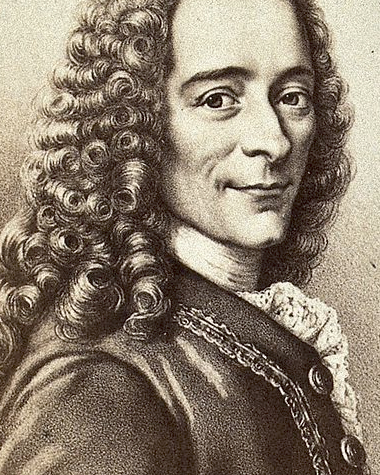

Average Confidence Level
HighVoltaire's IQ was calculated by averaging the scores reported by three reputable sources: Genetic Studies of Genius, Big Think and Business Insider. We also showing the score reported by one less authoritative source for reference. We approximated some of the scores by taking the midpoint of their provided ranges.
 Confidence Level: High
Confidence Level: High
 Confidence Level: Medium
Confidence Level: Medium
 Confidence Level: High
Confidence Level: High
 Confidence Level: High
Confidence Level: High
5 Facts That Show Voltaire's High IQ
- High IQ of 186: Voltaire's estimated IQ of 186 places him among the most eminent intellectuals of history. His score reflects his exceptional ability to analyze, critique, and articulate complex ideas and societal critiques.
- Prolific Writer: Voltaire's extensive bibliography is comprised of over 2,000 books and pamphlets, as well as plays, poems, and essays. His many works demonstrate his immense knowledge and capacity to communicate effectively across various genres.
- Master of Satire: With his acute wit, Voltaire used satire as a powerful tool to criticize corruption and hypocrisy within the government and the Church. He influenced public opinion and societal standards. Not everyone appreciated Voltaire's commentary. Some of his most famous writings have been banned!
- Advocate for Civil Liberties: Voltaire's advocacy for freedom of speech, religious tolerance, and judicial reform marked him as a visionary proponent for civil liberties. He was ahead of his time in understanding the principles of human rights.
- Philosophical Influence: His philosophical letters and essays, particularly those criticizing the established social and religious order, played a significant role in shaping Enlightenment thought and continue to impact modern philosophical inquiry.
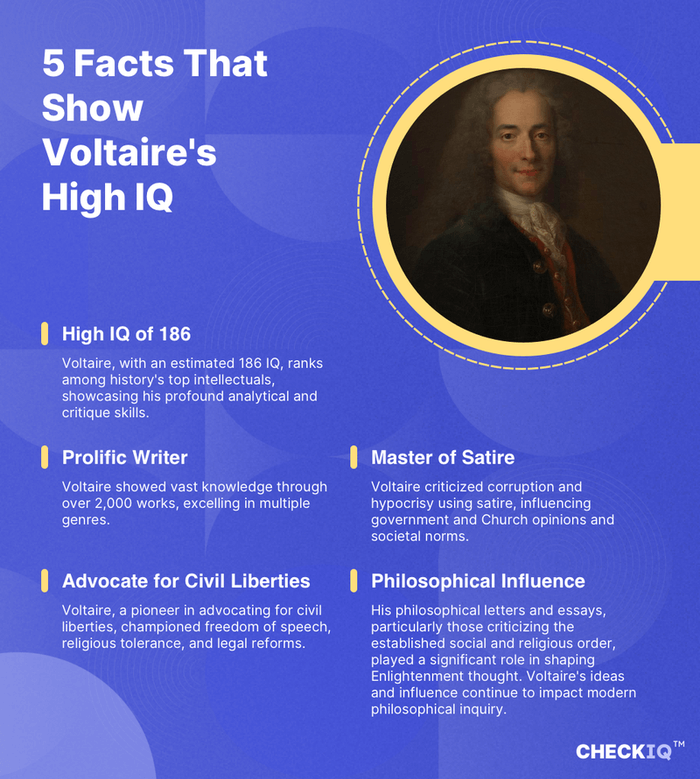
Try our accurate online IQ Test. Get your IQ score immediately.
Start IQ Test
How Smart Was Voltaire Compare to the Average?
An IQ of 186 is nothing short of exceptional. It rivals the IQs of some of the smartest people in the world. Voltaire's IQ places him well above the threshold for virtually every modern high IQ society. Societies like Mensa (minimum IQ 130), Intertel (135), and the Triple Nine Society (146) would easily welcome a mind of his caliber. However, it’s important to note that this figure is based on historical assessments, as modern IQ tests didn’t exist in Voltaire’s time.
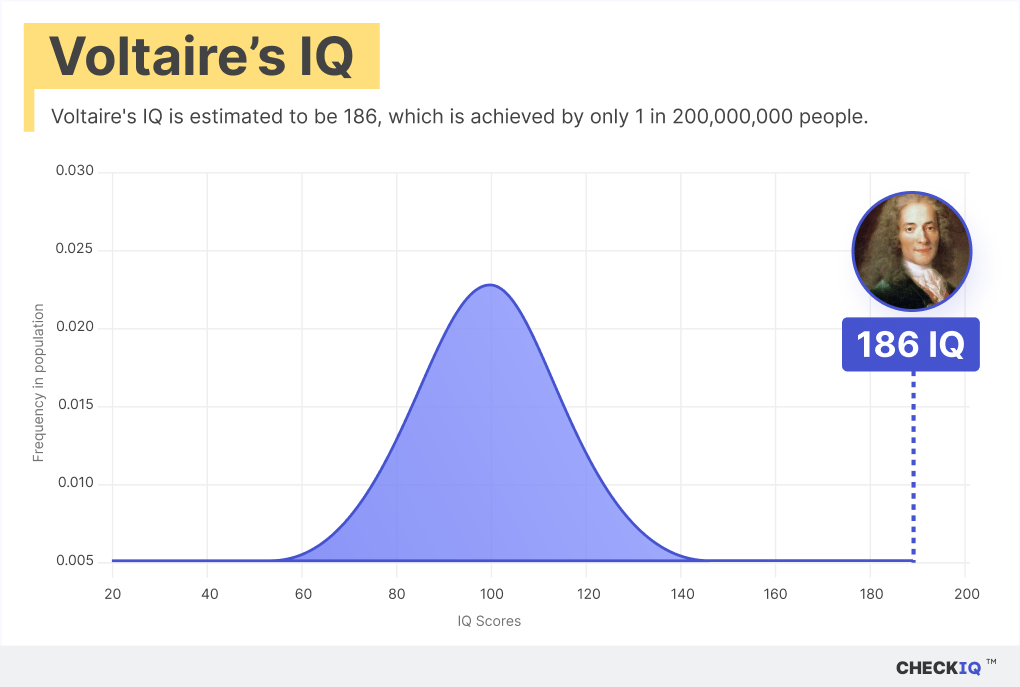
How does Voltaire’s IQ stack up against history’s brightest minds?
In the pantheon of intellectual greats, Voltaire’s estimated IQ of 186 is undeniably remarkable, but how does it measure against others?
Among his closest matches is Emanuel Swedenborg, with his IQ of 187. Known for bridging the realms of science and mysticism, Swedenborg is a perfect example of a versatile intellect that paralleled Voltaire’s own ability to blend literature, philosophy, and incisive social commentary. Both men shaped their eras, leaving legacies that transcended their immediate fields.
Rising even higher on the IQ scale is William Shakespeare, with an estimated IQ of 210. Shakespeare’s mastery of the English language and his profound insight into human nature made him a towering figure in world literature. His plays and poetry continue to resonate across cultures and generations, embodying the pinnacle of literary genius.
Following closely behind Shakespeare is Johann Wolfgang von Goethe, whose IQ of 205 reflects an unparalleled ability to excel in both literature and science. Goethe’s contributions extended far beyond poetry and drama; he delved into natural sciences, philosophy, and even early color theory, creating a legacy of intellectual versatility that inspires scholars to this day.
The world of literature also boasts other bright stars. Mark Twain, with an IQ of 170, revolutionized American storytelling through his humor, wit, and sharp social critiques. His works, such as The Adventures of Huckleberry Finn, remain seminal texts in both literature and social commentary. Meanwhile, Charles Dickens, with an IQ of 145, wove compelling narratives that continue to captivate readers. He demonstrated how a deep understanding of human emotion and society can create enduring literary masterpieces.
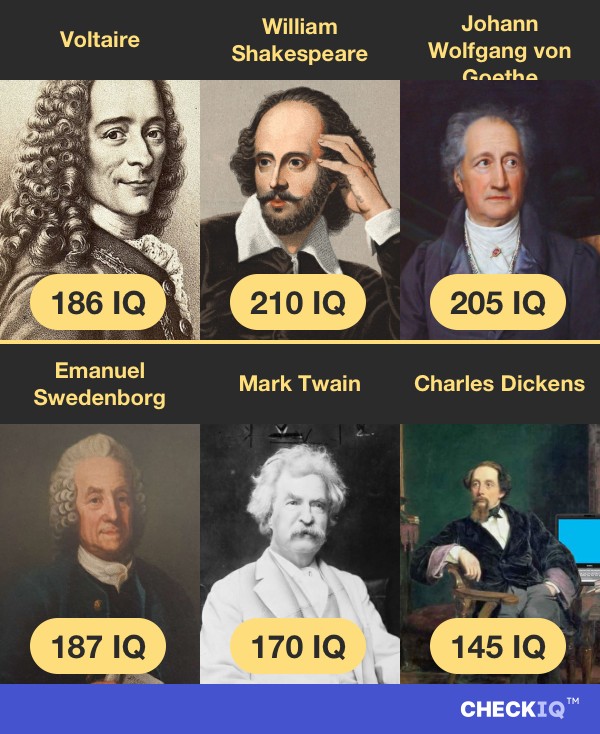
Were you expecting Voltaire's IQ to not reach 186? Let's discuss your opinions in the comments section!

Discover the IQ of Other Famous People
-
 Taylor Swift136 IQ
Taylor Swift136 IQ -
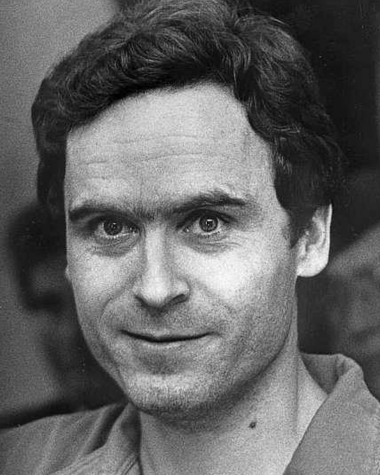 Ted Bundy124 IQ
Ted Bundy124 IQ -
 Iron Man270 IQ
Iron Man270 IQ -
 Jim Carrey153 IQ
Jim Carrey153 IQ -
 Johnny Depp139 IQ
Johnny Depp139 IQ -
 Sam Altman170 IQ
Sam Altman170 IQ

